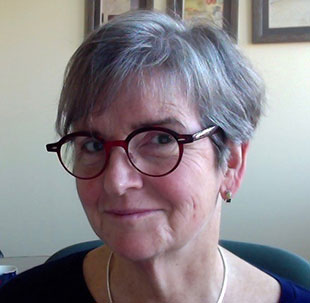 Few topics in the world of education have as much resonance in the national conversation as the quality of the people entrusted with teaching American children: New standards, preparation, and evaluation methods for teachers are being discussed on an almost daily basis.
Few topics in the world of education have as much resonance in the national conversation as the quality of the people entrusted with teaching American children: New standards, preparation, and evaluation methods for teachers are being discussed on an almost daily basis.
But Suzanne Wilson, a nationally renowned expert on teacher preparation and professional development who joined UConnʼs Neag School of Education as the Neag Endowed Professorship from Michigan State University, says thatʼs not an entirely novel development.
“Historically, weʼve gone through a number of periods where the public was concerned about the preparation of teachers,” she says. “You had it in the 1920s, in the 1930s, in the 1960s.”
Whatʼs new at this time, however, is the number of new institutions offering teacher preparation; the changes in school districts themselves, as models like charter schools become more common; and the unprecedented national pressure on schools. The result, Wilson says, is that the people under the microscope can start to feel overburdened.
“The accountability movement has hit education particularly hard, and has raised serious questions about what schools are actually for,” she says. “Itʼs one thing to say we want to hold everyone accountable, but itʼs another to decide what your standards and measurements are going to be. I think teachers have felt really besieged in holding onto what they feel is right for students.”
As the debate over schools and teacher evaluations continues, Wilson says itʼs important not to lose sight of whatʼs been proven successful in the best teacher preparation programs.
“Close, intimate, two-way relationships with the schools,” she says. “Schools are busy places, and so when somebody is becoming a teacher they really need to do it in a structured, protected way, and thatʼs what a good teacher preparation program will help you do. You donʼt want to throw a prospective teacher into a classroom and say, ʻSink or swim.ʼ But universities canʼt do a good job preparing teachers unless theyʼre working hand-in-hand with the people in the schools who see all the issues in education on a daily basis, including how quickly things change.”
Wilson comes to UConn from Michigan State University, where she was a University Distinguished Professor and chair of the Department of Teacher Education. She received her undergraduate degree in history and American Studies from Brown University, and also has a masterʼs degree in statistics and Ph.D. in education from Stanford University. Before joining MSU, she was the first director of the Teacher Assessment Project, which created prototypes used for assessments by the National Board for Professional Teaching Standards.
“One of the things about UConn that struck me as really promising and exciting is that you have healthy collaboration and relationships with the disciplines outside the school of education,” she says. “The whole university is involved in teacher education, and thatʼs one hallmark of a high quality environment.”
Wilson comes to UConn at an auspicious time, shortly after the passage of landmark education legislation that created a role for the Neag School in helping to develop teacher evaluation models in the state. Wilson, whoʼs done research in Connecticut previously, says sheʼs looking forward to seeing how the state moves forward in the constantly changing realm of education policy.
“First, I just want to get to know UConnʼs programs and people, and I want to hang out in the schools of Connecticut, in the schools where new teachers are learning to teach,” she says. “Itʼs really going to be an interesting time in education not just in Connecticut, but around the country.”
For more information about professorships and supporting the Neag School of Education, contact Heather McDonald at (869) 486-4530 or hmcdonald@foundation.uconn.edu.
 Facebook
Facebook
 Twitter
Twitter
 LinkedIn
LinkedIn
